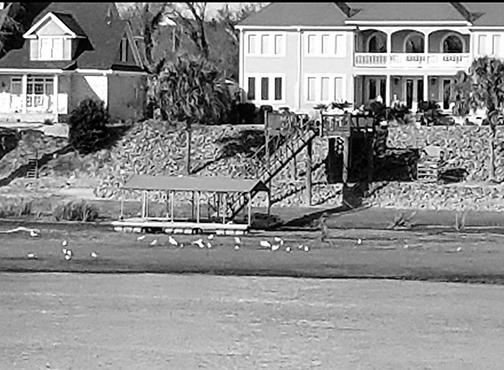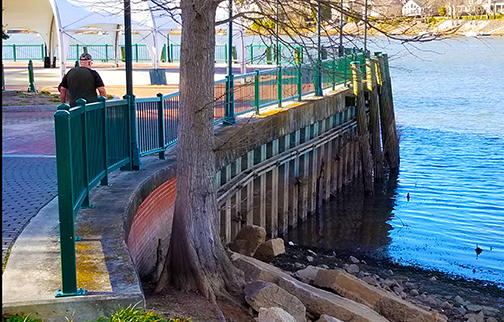Section Branding
Header Content
Augusta Previews Life With Lower Savannah River Levels
Primary Content
This week, the water level of the Savannah River in Augusta is lower than it’s been in recent memory.
The Army Corps of Engineers is conducting a simulation of conditions that would exist if the aging Savannah Bluff Lock and Dam is replaced by a rock weir and fish passage. That change is one of the environmental measures planned to offset the effects of The Savannah Harbor Expansion Project.
Reaction from residents has been largely negative.
The lower water level has resulted in a strong stench, dead aquatic weeds, mud flats, and exposure of previously submerged structures, all of which pose a hazard to recreational activity on the river.
The Augusta Chronicle reports that Augusta Commissioners are considering hiring a firm to develop an alternative to the Corps’ plan that will still allow fish to return to their natural spawning areas while maintaining higher water levels through Augusta.
Russell Wicke, a spokesman for the Army Corps of Engineers, said installing the rock weir is the most cost efficient way to resolve the fish passage issue. He says the Corps considered repairing the lock and dam and building a passage way for the fish to go around it. However, that would double the cost of the project today, and the entire structure would need to be rebuilt in about 50 years.
Wicke said they expect the river to be back to “normal levels” by the middle of next week.
A 30-day comment period follows that will include a public town hall meeting, tentatively scheduled for March 6, during which concerned residents will have an opportunity to share their views on the plan with Corps representatives.
After the comment period and the public meeting, the Corps will make any adjustments to the plan, then send the final draft to their regional headquarters in Atlanta where the final decisions will be made. An announcement of the decision is expected in August.
WRDW-TV reports that the current time line calls for construction to begin no later than January 2021.


